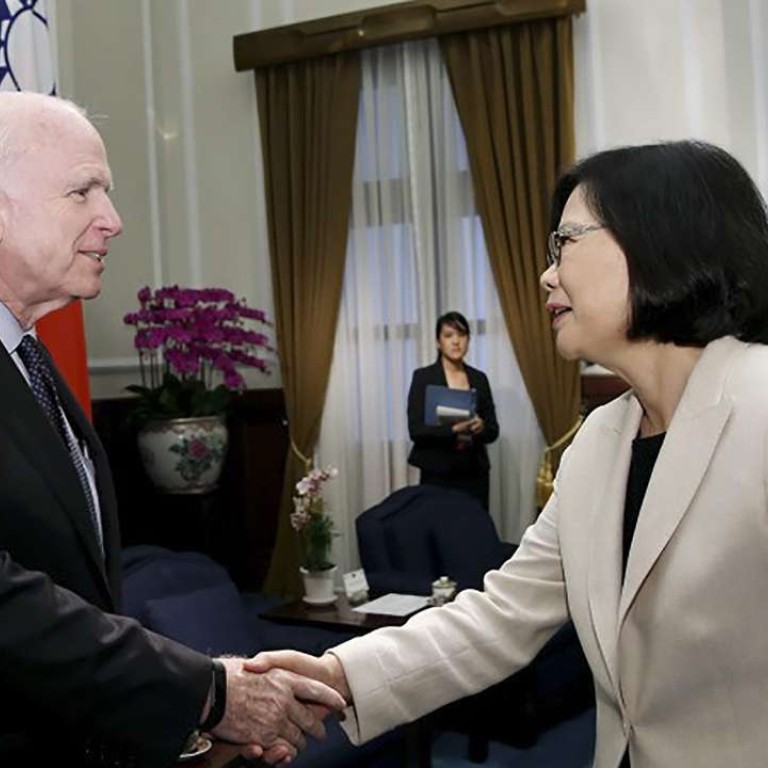
Taiwan seeks stronger support from US to counter pressure from Beijing
Taiwan is seeking further support from the United States in a bid to counter pressure from Beijing.
Analysts said the move was inevitable given the refusal by Taipei’s new government to acknowledge the “1992 consensus”, which the mainland insists upon if talks and exchanges between the two are to continue.
But they warned that, while the US considered Taiwan as a part of its overall strategy in the Asia-Pacific region, Washington had always treated its relationship with Beijing as more important than its relationship with Taipei.
Too heavy a reliance by Taiwan on the US would result only in Washington demanding more from the island, they said.
Meeting visiting US Senator John McCain on Sunday, the island’s leader Tsai Ing-wen pledged to seek further cooperation with the US on security, trade and investment, and international participation.
“I hope you can continue to voice support for Taiwan ... so that our relationship can become even better,” Tsai said.
Taiwan says it will not recognise Beijing’s South China Sea air defence zone
She asked McCain, who heads the US Senate Armed Services Committee, to help facilitate US weapon sales to Taiwan to boost the island’s defence. She also sought US congressional support for the island’s bid to join the US-led Trans-Pacific Partnership trade pact.
In response, McCain suggested Taiwan increase its defence budget to 3 per cent of its gross domestic product.
Local media said McCain’s visit, the first by a Senate Armed Services Committee chairman to Taiwan in 24 years, represented US support for Tsai, who has sought to increase trust with Washington since declaring her presidential bid last year.
Beijing has demanded Tsai adhere to the “1992 consensus” or face suspension of cross-strait interactions. The consensus refers to an understanding in 1992 that for the two sides to continue to talk, they agree there is only one China, though each can have its own interpretation of what that China stands for.
Beijing expresses dissatisfaction after Taiwan’s new President Tsai Ing-wen swaps ‘consensus’ for ‘historic fact’
Tsai, of the independence-leaning Democratic Progressive Party, has declined to acknowledge the consensus.
Alexander Wang Chieh-cheng, professor of American and strategic studies at Tamkang University in Taiwan, said the Tsai government hoped to deepen economic and military ties with the US to cope with the pressure from Beijing.
“But the new government needs to take into account that Washington always treats US-China relations as above US-Taiwan relations, and that the more Taiwan relies on the US, the more demands the US will make on Taiwan,” Wang said.
He said there had been divisions in the US over free-trade issues, and the Tsai government should not rely solely on Washington for its bid to join the TPP.

